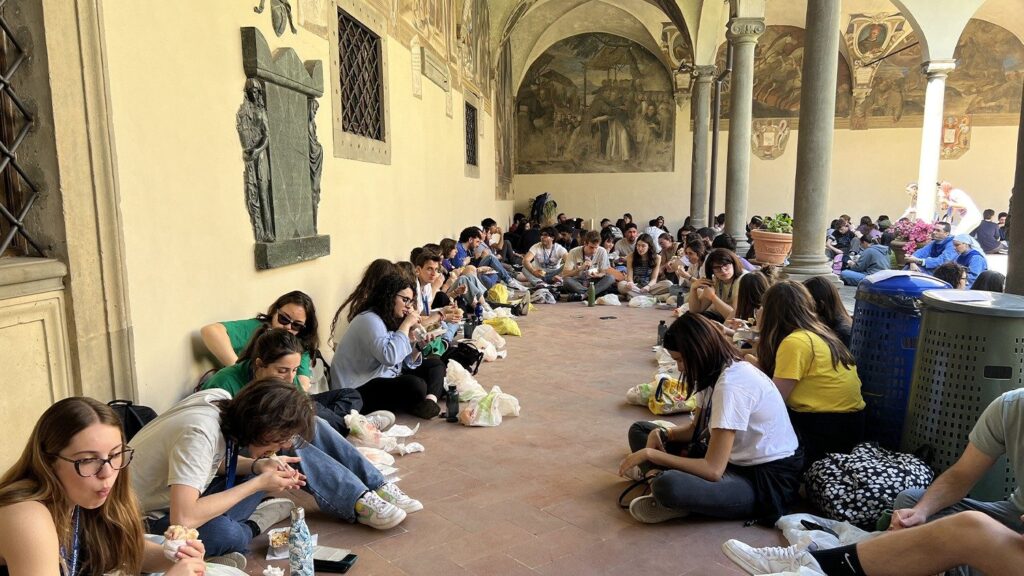As we celebrate the 800th anniversary of the stigmata of St. Francis of Assisi, hundreds of young people will gather in Florence until Sunday to look to the future through the eyes of the great saint.
Written by Giancarlo La Vera and Marina Tomaro
Young people gathered in Florence, Italy, to fully understand the legacy of St. Francis.
They do this through dialogue with other generations.
At least 1,000 young people from all over Italy have come together to explore various themes related to St. Francis as we celebrate the 800th anniversary of St. Francis' Stigmata.
This was seen on the opening night when he met Roberto Vecchioni, who met Davide, a young singer-songwriter, and two girls from Rondine, Cittadella della Perce, one of whom was Ukrainian. , the other one is Russian).
The two young women shared their great pain over the war that has been going on between the two countries for over two years.
For the sustainable protection of creation
Stefano Mancuso, a professor at the University of Florence and founder of plant neurobiology, said from the stage at the Francesco Live event that “we need an ecological transformation to save life on Earth.''
Francesco Live Events is a gathering of young people who want to seek answers following the testimony of the poor of Assisi.
On Friday, Florence's Basilica of the Holy Cross was filled with young people taking part in the event.
The first plenary session was dedicated to integral ecology.Mancuso continued, adding: “As precious as it is, the amount of life on Earth is decreasing. The number of animals on Earth, including mammals, has been halved in the last 50 years.” , almost all of them are humans and animals that are currently part of the human food chain. ”
A planet distorted by humans
Chiara Giaccardi, professor of sociology at the Catholic University of Milan, also emphasized the weight of humanity's footprint on the planet. “We are in the Anthropocene era. Humans have the power to distort the Earth.”
When faced with this, she said, the answer lies in being generative.
“Science teaches us that everything is a relationship, and that relationships are generative, producing future fruits. Freedom is not the absence of ties; it is the bringing into existence of what does not yet exist. It's about bringing something new to society' in a way that shares the world. ”
This represents the opposite of individualism, according to sociologists, who say that individualism “frees us from everything and ends up making us all the same. This is the opposite of our anthropological vision. In order to create, all geniuses need to be fertilized. Everything we do has an impact on society and nature.”
climate crisis and immigration
Giorgio Brizio also spoke at the plenary session, coordinated by Michela Lazzeroni, professor of economic and political geography at the University of Pisa.
The 22-year-old international development cooperation science student is also working on the climate crisis and migration.
Also on stage was Friar Francesco Zecca, a minor friar from the Province of Salento, who has been dedicated to justice, peace and protection of creation for many years, both in his city of Taranto and in the OIKOS project. .
OIKOS is a Mediterranean network of Franciscans who brought several young people from countries bordering Florence during Francesco Live.Mare NostrumAnd for many days, in the Sala Giunta of Palazzo Vecchio, we have been discussing many issues concerning the present and future of this part of the world.
The central theme of Saturday's event was the economy.
Vatican Radio – Vatican News is the media partner for this event.

